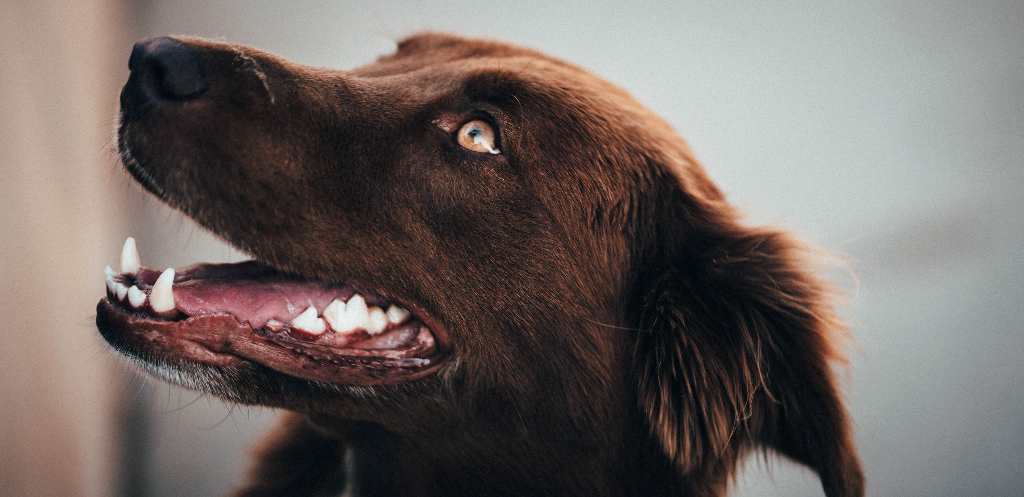Much like it is in people, poor dental care can result in significant costs or reduced quality of life in our pets. Also as it is in people, dental care is often one area of care that is overlooked or neglected. And especially as our pets start to age and move into the senior season of their life, dental problems can begin to compound and become serious. But regardless of what stage of life your pets are in, the following article will talk to what you can expect when it comes to maintaining your pets' teeth and gums.
Dental Disease
Dental disease is a catch-all term to mean any adverse condition related to the teeth and surrounding structures. This means the teeth themselves, gums, mouth, and sometimes even the bones of the jaw and the sinuses. It can mean injuries, inflammation, or simply an adverse environment in the mouth.
The most common cause of dental disease starts with plaque. Plaque is a thin film that develops on teeth daily. If not removed, plaque will become calculus. Calculus is a hard material that sits on the teeth harboring bacteria. The combination of plaque, calculus and bacteria together will cause gum recession, tooth root exposure, bone loss and loose teeth.
Preventative Maintenance
The easiest way to prevent most dental disease is to reduce the plaque before it has a chance to build up. There are several options for this with various trade-offs for ease and effectiveness.
- Daily Brushing - Daily brushing is the gold standard of preventing plaque buildup—just like it is with people. However, the reality is that this is often not an option for a lot of pets and owners. To get started with pet brushing, we suggest picking up a pet-specific toothbrush and toothpaste. Pet toothbrushes often have a longer handle and are made of stronger materials to resist chewing. Pet toothpaste has a taste that pets enjoy and will not upset their stomach when swallowed. For the same reason, human toothpaste should be avoided because it is not intended to be swallowed.
- Oral Rinse - Pet-specific mouth rinses usually come in the form of an additive that you add to the pet's water on a daily basis. When selecting an oral rinse for dogs, we recommend choosing one without Xylitol, such as C.E.T. Aquadent. Even though the concentrations are low enough to be safe in oral rinses, Xylitol can be toxic to dogs in high quantities.
- Dental Chews - There are several products that replace a daily treat with one that is designed to break up calculus. Greenies is the name brand that is most well known, but there are a wealth of choices in this category. These are most effective when used daily to keep plaque low.
- Dental Food - Some pet foods are designed to break up calculus and reduce plaque. They contain grittier texture and some additives to help with this. These can be effective, but they tend to be prescription only; they often contain higher calories than comparable regular foods; and they can be relatively expensive. Ask your veterinarian about recommendations for dental foods.
Professional Cleaning
Just like in humans, even with regular maintenance, professional cleanings may be required every so often. This can be needed as quickly as every 6 months or as long as every couple of years.
Professional dental cleanings like this always occur at a vet's office. The reason for this is because the procedure requires full sedation as it would with a surgery. This procedure utilizes special tools to break up calculus and clean the teeth of plaque and bacteria. Oftentimes, teeth that have deteriorated too far may be pulled at the same time while the pet is under anesthesia. Your veterinarian will discuss this with you.
Other dental issues
Other dental issues can occur. These require intervention from a veterinarian. Here are a few of the most common issues.
- Broken Tooth - Just like it sounds. This can occur due to a trauma like falling or colliding with a solid object. Or it can occur when chewing on treats that are too hard such as bones or antlers.
- Resorptive Lesions - This is an issue that occurs overwhelmingly in cats and results in cavity-like areas.
- Stomatitis - Another issue that occurs most often in cats, this not-well-understood condition causes pain even with minimal dental disease. If your cat begins acting strangely when eating—especially if there have been no issues in the past—contact your Veterinarian for a checkup.

